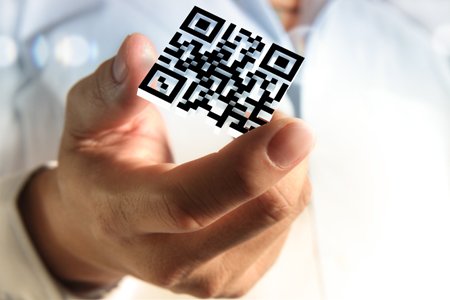CASHLESS SOCIETY – WHAT’S IN IT FOR THE UK?
Published by Gbaf News
Posted on January 21, 2016
4 min readLast updated: January 22, 2026

Published by Gbaf News
Posted on January 21, 2016
4 min readLast updated: January 22, 2026

The UK passed a major milestone on its journey to becoming a cashless society last year when it was reported that electronic payments overtook their paper counterparts for the first time[i]. According to the Payments Council, only 48% of payments made by British consumers and businesses in 2014 were in cash, down from 52% in 2013. On top of this, a separate survey found that 71% of British customers carry less than £20 in cash at any time, with half saying that they will walk no further than 100 metres to find a cash machine[ii].
So what’s causing this shift in payment habits and how would cashless benefit banks, merchants and consumers?
Danger, danger!
Firstly, cash presents greater risks than card and other forms of electronic payment. For example, keeping cash on the premises puts banks and merchants at risk of theft. We can learn from Sweden here – as one of the first countries looking set to become a cashless society – when in 2013 a bank robber left empty handed after he discovered the branch kept no cash on site[iii]. Separately, paper money is also propping up the shadow economy and costing us all due to the anonymity it provides for elicit transactions.
Time is money
It is time consuming and costly for merchants to handle cash. According to PayPal, counting notes and depositing cash at the bank is costing Britain’s small businesses around two weeks and £2.5 billion per yearii. Conversely, card payments are quick and simple, and with contactless going mainstream, retailers can serve queues of customers with even greater speed and convenience. In fact, in June 2015, the British Bankers’ Association reported that since the introduction of contactless cards, consumers have collectively saved over 90 years of waiting time at the checkout[iv].
Cash is ‘harder to spend’
Not only is cash inconvenient, it is emotive too. Research suggests that consumers spend more using their cards. Psychologists call this reluctance to part with cash ‘coupling’ – when a consumer becomes attached to cash and is less willing to part with it[v].
Cards are personal
Whether using loyalty, debit or credit cards, consumers hand over valuable data to retailers on a daily basis. Merchants can not only use this information to measure the effectiveness of promotions and monitor customer loyalty, but also target consumers with more specific and personal adverts based on their shopping habits[vi], benefitting both sides of the transaction.
Electronic equality
In a piece for Foreign Policy, Vishnu Sridharan of the New America Foundation wrote that that cash-based economies “harm the poor by heightening the risks they face when carrying money and fuelling government corruption and inefficiency”[vii]. While government corruption is (hopefully) a thing of the past for the UK, the sentiment of the statement still rings true. For many individuals with a poor credit history, for example, cash has historically been the only option as they were side-lined by the traditional banking system. Without banking services it is harder to find a stable financial footing and almost impossible to collect enough for long term investments like education and property. Times have changed though. Prepaid cards with bank-like online services are an option for those who can’t have or don’t want a traditional account. These services are increasing financial access and improving transparency in the financial services industry.
Is cashless a reality?
For most young shoppers electronic payments are already ingrained. The Payments Council is predicting that the majority of consumer purchases in the UK will be cashless this year, largely driven by millennial consumers who are less reliant on physical tender. Happily, cashless acceptance amongst more senior consumers is also growing with 19% of over-50s using contactless technology up to three times a week[viii].
Taking the capital as an example, contactless technology has successfully been rolled out by Transport for London (TfL). In July 2014 it announced that its buses would no longer accept cash as a form of payment due to the dwindling numbers of passengers using physical money to travel. This is surely justified when you consider that around 99% of passengers use Oyster, prepaid tickets, contactless payment cards or concessionary tickets instead[ix].
The benefits of a cashless society are many and wide-ranging and this data suggests we are on the right track. It will take some time to achieve, however, as commitment from consumers, merchants and banks is required for it to become a reality. Many have realised that cards and digital payments are safer and more secure but the UK isn’t ready to say goodbye to cash yet. Payment methods come to the market to increase options and are not easily shown the door.
Explore more articles in the Top Stories category











